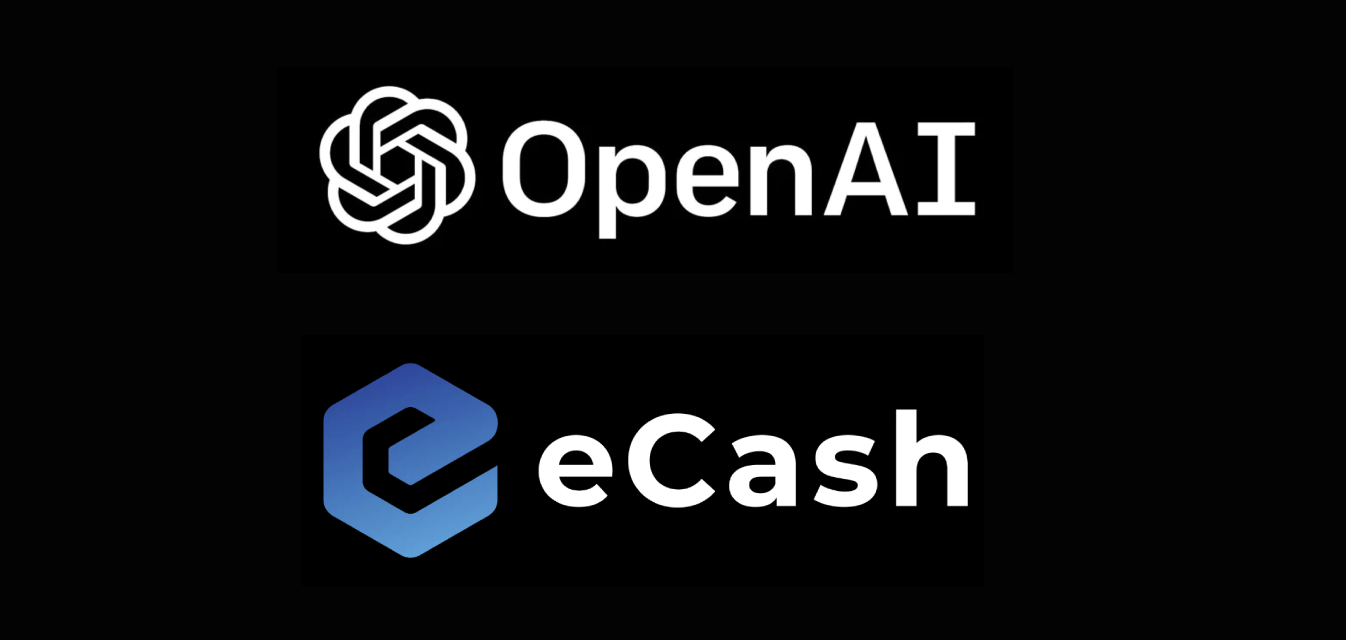Recently there’s been a lot of speculation about what happened behind the scenes at Open AI, the company behind ChatGPT. Here’s what we know. This past Friday, the 4 person board of directors fired the CEO, Sam Altman, and was immediately met with enormous backlash from both company insiders and outsiders alike. While no details have emerged as to exactly what led to the firing, chances are that the members of the board didn’t share Altman’s vision as to what was best for Open AI.
I bring all this up because I couldn’t help seeing some parallels between Open AI and the eCash project. For example, in the aftermath of Altman’s firing, many Open AI employees took to Twitter over the weekend to signal that they would resign if the firing wasn’t reversed. It got me thinking about the intentions of these employees, and while I am in no way suggesting this is actually the case, I could imagine a scenario where employees with thousands of stock options might favor a CEO whose objective was to maximize profits over a board whose goal might be to maximize safety.
It reminded me of something I’ve been thinking about with regard to eCash. For example, what if all the eCash stakeholders decided to vote for increasing the staking rewards so that instead of only receiving 10% of the block reward, it became much higher? Another way of putting it is how do we ensure that the eCash stakeholders do what’s in the best interest of the project, rather than what they think is in the best interest of their individual wallets?
To me, the answer comes down to culture. Culture as in what do the stakeholders of these projects ultimately want? In the case of Open AI, is the goal to make as much money as possible, or to safely create artificial general intelligence that benefits all of mankind?
You can pose a similar question for the eCash project. Is the goal to maximize the net worth of eCash holders, or to fulfill the mission of creating the best form of money the world has ever seen?
It might be argued that these goals aren’t necessarily mutually exclusive, that achieving one could even lead to the other. But I think in order to establish the right culture, it’s important for stakeholders to reach consensus on what is their goal.
None of us know how the advent of AGI will impact humanity, just like we can’t be certain what a totally permissionless, censorship resistant, peer-to-peer electronic cash system will do for humanity. But what I do know is I want to find out.
I’m not here because I’m just hoping to 10x (or even 100x) my net worth over the next couple of years, but because I want to 10,000x the quality of life on this planet (and maybe even other planets) for generations to come.
That’s why I hope the culture of the eCash project is one where we prioritize maximizing overall value creation and not just enriching early investors, where the goal is creating a civilization changing technology that can improve not just a few lives, but billions of lives.
So now how do you achieve the right culture? By having good governance, of course.
It is my understanding that none of the Open AI board members actually held any shares in Open AI. Like many company boards, these individuals were merely chosen by the shareholders to act as their proxy. It made me wonder why not just have actual shareholders on the board? That’s when I realized one possible reason could be that if there are a lot of shareholders, it wouldn’t be convenient, or efficient, to do so. Another issue could be privacy, as in how would a shareholder make public statements without also giving up their identity?
This is why I believe eCash has the opportunity to create a much better governance mechanism. Both through its GNC, as well as the ability for eCash staking nodes to signal their vote directly through the blockchain. These mechanisms give eCash stakeholders an easy way to signal to one another not only their views on any given proposal, but also how much eCash they hold without revealing who they actually are. This might be why some say the eCash network isn’t just a monetary system, but also a communication system, one that can help us reach consensus by polling cryptographically proven stakeholders instead of having to base decisions on who gets the most likes on Twitter, or the most upvotes on Reddit.
But in the end, governance comes down to the free market itself. Because unlike Open AI, eCash is both open source and opt in. This means anyone can buy or sell XEC, and even fork the chain if they want to give people another choice, not just of a new coin, but of a new culture, one that might have its own understanding of the meaning of wealth.
🔥 3 unlocks and counting...
